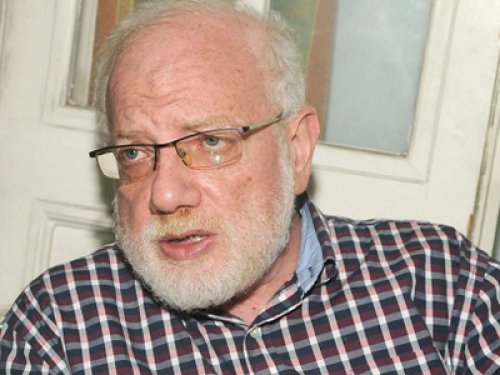
RNA – In an article published on his website (www.elnafis.net), Dr Ahmad Rasim al-Nafis, an Egyptian Shi’ite scholar, strongly criticized the recent statement by Egypt’s renowned al-Azhar University in which they condemned Iraq’s Shi’ite militias fighting against DAESH (ISIL).
Dr al-Nafis explained: “I do not know who the Grand Imam of al-Azhar is dependent on. Is he dependent to the Egyptian Foreign Ministry or is the ministry dependent on him? Is the Grand Imam of al-Azhar free and independent or is the administration of a country responsible for it? Does he send a message to the United States and determine Egypt’s foreign policy?”
He added: “When I was searching on al-Azhar’s website intending to mobilize the people against the message of al-Azhar against the people’s militias in Iraq, I saw about an article about the Grand Imam of al-Azhar’s meeting with the American Ambassador, where the US’ relationship with regional powers was discussed and the claim that after stabilizing Iraq, Syria and Yemen were next was heavily criticized.”
Dr al-Nafis pointed out that the content of this meeting reflects the belief of al-Azhar over American moderation and the extremism of their enemies. He added that at the time when [Israeli Prime Minister Benjamin] Netanyahu spoke to the US Congress, Shaykh Ahmad al-Tayyib, the Grand Imam, called for a halt between any agreement between Iran and the P5+1 group of countries.
“It is strange that the Grand Imam, who claimed to have no involvement in politics and supported the unity of Muslims, requested this from the American ambassador,” he added.
In regard to other comments made by Shaykh al-Tayyib, Dr al-Nafis asked: “What do Iran’s nuclear negotiations with the imperial powers have to do with him and do his words represent the official position of the Egyptian government that the agreement prevents war in the region? Or do they represent the positions of other countries that the Grand Imam loves more than his own?”
“As a leading preacher, the Grand Imam of al-Azhar should not personally raise such a request from the American Congress until that request is sent through their ambassador. Unfortunately, the Grand Imam of al-Azhar thinks that it is Iran’s turn after Iraq. He will be in the trench with Saudi Arabia against Iran,” he continued.
Dr al-Nafis stressed that the Grand Imam sees the DAESH terrorists as a threat to Iran but that his apparent message of support for DAESH and opposition to the Iraqi Shi’a militias was completely worthless because the information came from the Saudi and Qatari media. However, we understand that the message was issued after a delay by the Grand Imam’s representatives.
Last week, al-Azhar released a statement in which they stated: “al-Azhar follows and expresses its worries regarding the actions committed by the so-called ‘Militias of Popular Mobilisation’ allied with the Iraqi army” and also claimed that militias burned Sunni mosques, and killed Sunni women and children.
111/112